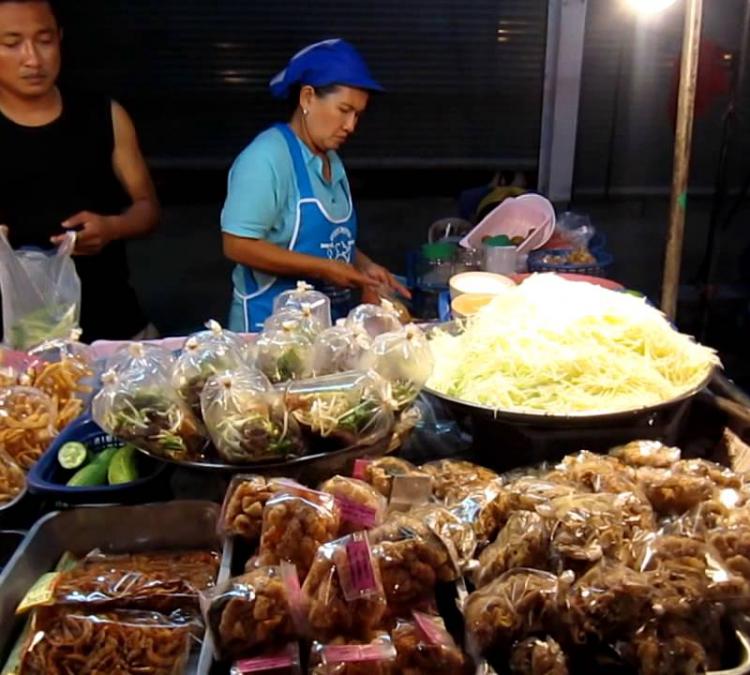Life is not easy for HIV-infected people in Thailand. And not just due to the physical consequences of the virus. The stigma makes it hard for people to live a normal life. Therefore, people like Bon’s parents keep it a secret that they are infected.
Bon (not his real name), is a 10-year-old boy who lives in the northeast of Thailand together with his younger sister Mai (2012), father Warit (1975), mother Pari (1992) and his grandparents. Both parents are HIV-infected and take ARV-medication. Besides the parents themselves and Siam-Care, no one else knows they are HIV-positive. They fear the stigma and are afraid for the judgement of society.
Long days, little pay
Mother and father now run a little noodle stall, next to a big road. They are afraid their customers will go somewhere else if they know about their infection. While they currently hardly make enough to make ends meet. Yet they work very hard: their food stall is open daily from 15:00 until 23:30. Before that time they prepare the food, and after closing hours, they need to clean up for another 2 hours. It’s hard work, but they are proud that they make enough to cover the rent of their house (2000 Baht per month, around 50 Euro) themselves.
Become a doctor
Bon is a talkative and outgoing boy. He doesn’t understand the physical condition of his parents.He currently studies in the fifth year of primary school and is an average student. He enjoys art and math the most and when at home, he enjoys running and playing other sports. In the future Bon would like to become a doctor.
Different ways of supporting
This is just one example of a family Siam-Care looks after. We don’t always give financial support, as in some cases people may be poor, but they have just enough to survive without financial support. This family does get some financial support: we cover the educational costs of their children. But perhaps more important: we train them in how to live with HIV, as they are too ashamed to ask anyone else. We offer a shoulder to cry on and make sure they manage. In other words: we only have poor, underprivileged people, but we don’t always just give financial support. We help families to develop psychosocially, physically and spiritually, until they can take care of themselves (again).
